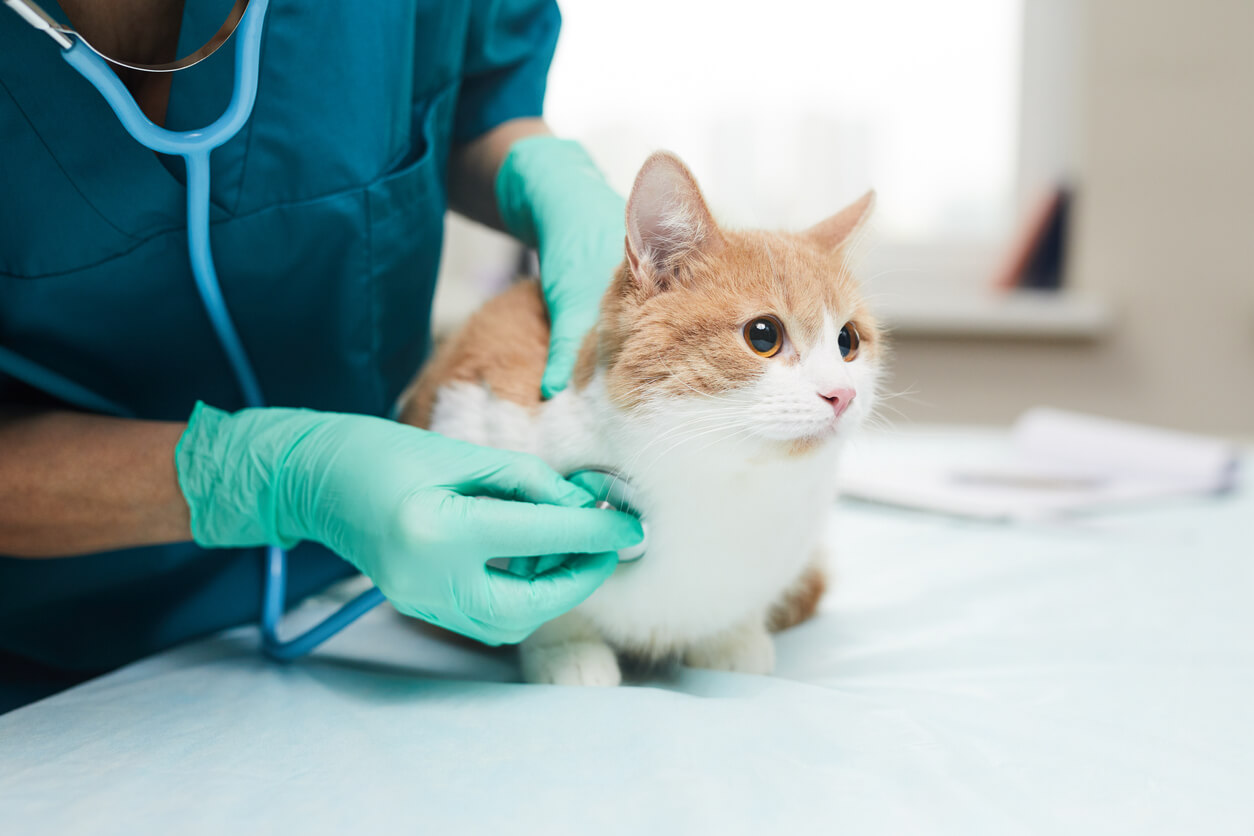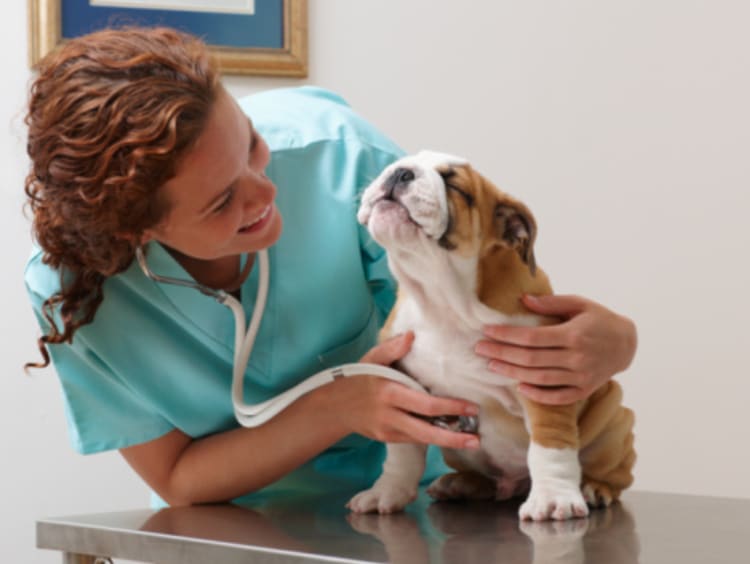Maintain Your Pet Healthy And Balanced with Routine Pet Health Checkups from Trusted Vets
Maintain Your Pet Healthy And Balanced with Routine Pet Health Checkups from Trusted Vets
Blog Article
Vaccination Guidelines From Your Relied On Veterinarian
Vaccination guidelines offered by your trusted veterinarian play a critical duty in protecting your pet dog's health and wellness. Furthermore, addressing common misconceptions bordering vaccines can better enhance pet proprietors' confidence in these precautionary procedures.

Significance of Vaccinations
Inoculations play a pivotal role in guarding pet dogs against a variety of avoidable illness. By promoting the body immune system to recognize and deal with particular virus, vaccinations dramatically reduce the incidence of infectious illness that can influence a pet dog's health and long life. Not only do vaccinations shield specific animals, yet they also add to herd resistance, thereby reducing the overall frequency of diseases in the pet population.
Timely inoculations assist to mitigate the spread of illness such as rabies, parvovirus, and distemper, which can have serious effects for both pets and humans. Furthermore, inoculations are frequently a need for boarding facilities, brushing services, and pet dog parks, making them essential for those who desire to socialize their pets.

Core Vaccinations for Pets
While the certain inoculation requirements of pets can differ based on specific aspects, core injections are globally advised to secure against one of the most serious and common illness (Pet Health Checkup). Core vaccinations are those considered important for all pets, no matter their lifestyle or geographical place, as they guard versus extremely contagious and possibly fatal illnesses
For pet dogs, the core vaccines consist of those for canine distemper, parvovirus, adenovirus (hepatitis), and rabies. Adenovirus can result in liver illness, while rabies is a zoonotic disease that presents a risk to both human beings and family pets.
In pet cats, core injections encompass feline panleukopenia, feline calicivirus, feline herpesvirus (rhinotracheitis), and rabies. Feline panleukopenia is a very contagious viral condition that affects the immune system and intestinal tracts. Calicivirus and herpesvirus are major factors to upper respiratory infections in felines, while rabies stays a vital concern for public health and wellness.
Talk to your vet to guarantee your pets obtain their core inoculations on schedule.
Non-Core Vaccines Explained
Non-core vaccinations are customized to attend to details dangers related to an animal's direct exposure, way of living, and setting to particular illness. Unlike core injections, which are generally suggested for all family pets, non-core injections are taken into consideration based upon private conditions. These vaccinations are specifically important for pet dogs that might experience distinct virus because of their geographical area, traveling behaviors, or tasks.
Examples of non-core vaccines consist of those for Bordetella bronchiseptica, which is linked to kennel coughing, and Lyme disease, triggered by ticks. Family pets that regularly communicate with other pets, such as those in boarding facilities, canine parks, or grooming environments, might profit from Bordetella inoculation. Likewise, if you reside in a location where Lyme disease prevails, vaccinating against this disease can be a sensible choice for outdoor-loving dogs.
Various other non-core injections might include those for leptospirosis, canine influenza, find more and feline leukemia, depending on the certain risk aspects present. It is important to have a detailed conversation with your vet about your pet dog's way of life and the potential need for these injections, ensuring a tailored vaccination strategy that finest shields your read here furry close friend.
Vaccination Set Up Review

As family pets develop, it is very important to follow the advised booster inoculations. Vet Enterprise. For grown-up animals, core injections are typically provided each to 3 years, depending upon the certain vaccine and local policies. Non-core vaccines might be suggested based upon way of living aspects and regional disease frequency, demanding a customized strategy
Routine vet examinations are vital for upgrading inoculation routines. Your vet can give assistance on the most suitable booster shots for your pet, considering age, wellness condition, and ecological dangers. By remaining aggressive and educated, pet proprietors can ensure their furry companions receive effective and prompt vaccinations, thereby securing their health and wellness throughout their lives.
Usual Myths About Injections
Mistaken beliefs about animal inoculations can bring about confusion and unwillingness amongst pet dog owners concerning the booster shot procedure. One prevalent myth is that vaccinations are unnecessary for interior pets. While it holds true that interior animals encounter lower dangers, they are not entirely unsusceptible to illness, as microorganisms can be introduced with look at this site various ways, including human clothing and other pet dogs.
Another mistaken belief is that vaccines can create the illness they aim to protect against. Actually, a lot of vaccines have suspended or attenuated pathogens, which can not trigger condition in healthy animals. Some pet dog owners additionally think that their family pets must not be vaccinated if they are already healthy; however, vaccinations are an aggressive action that assists prevent the beginning of health problem.
In addition, several pet dog proprietors fear that vaccines will certainly lead to long-lasting health complications. The advantages of vaccination-- safeguarding pets from possibly life-threatening illness-- much surpass the risks.
Conclusion
In recap, adherence to inoculation guidelines is vital for ensuring the health and wellness and long life of pet dogs. Dispelling typical misconceptions bordering vaccinations better strengthens the importance of educated decision-making in animal treatment.
Not only do inoculations secure private animals, however they also contribute to herd resistance, therefore minimizing the general prevalence of illness in the animal populace.
Misunderstandings about family pet vaccinations can lead to confusion and hesitation among animal owners concerning the booster shot procedure. While it's real that indoor family pets deal with lower threats, they are not totally immune to conditions, as microorganisms can be presented through numerous ways, consisting of human garments and various other family pets.
Some animal proprietors also think that their family pets ought to not be immunized if they are currently healthy and balanced; nonetheless, inoculations are a proactive action that helps protect against the beginning of health problem.
The advantages of vaccination-- protecting family pets from potentially serious diseases-- far exceed the threats.
Report this page